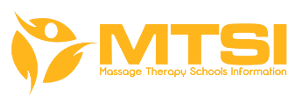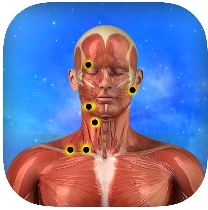
I began Massage Warehouse in 1998, where I led an amazing team of people who helped grow this business from nothing to a large, humming operation that still maintained its core values of helping massage and bodywork professionals with compassion.
After leaving Massage Warehouse in 2006, my wife and I moved to northern California and started a family. Three years ago we moved back to the east coast to Charleston, SC with our two young family additions.
During the five years in California I had the luxury of a great deal of time to think about what I wanted to do with the rest of my life. It was during this time that it became very clear to me that I needed to stay involved in the profession where my passion lay. The massage community had been very good to me and I wanted to repay the favor by finding a way to help all the amazing small practice owners and massage therapists who cared so deeply about making a difference in their clients’ lives, but who struggled with the business end of things.
MassageBook.com, is the result of my desire to take all that I have learned through years of running a massage practice as well as leading Massage Warehouse, and creating a software tool that would help talented MTs and practice owners recognize the success they deserved.
2. Tell us why you chose to go into massage and at what point in your life did you decide to do so? What were you doing at the time? Where did you first hear about the massage career? What factors influenced your decision? What were you looking to get out of this decision?
I was training and racing my bicycle in Italy in the summer of 1989 when I was introduced to massage. I remember the first massage I had there and how well my body responded. I was recovering faster and just felt amazing. It really made an impression. I graduated college later that year with a degree in Business Administration and was eager to take over the world of finance. A few years later I found myself working at a hedge fund in Chicago, working on the main trading desk – right where I had hoped I’d be.
Massage was the furthest thing from my mind. After a year in Chicago, I realized I had made a really big mistake. Although I was making a good income, I didn’t really like what I was doing, or the people I was working with. The focus was just on making money and it really didn’t bring out the best of people.
After this realization, I quickly left and took some time off. I taught kids sailing for the summer to try to regain my faith in humanity and feel like I was doing something meaningful. At the end of the summer I still didn’t know what I wanted to do, so I decided I’d ride my bike across the country. I would surely find an answer somewhere between Philadelphia and San Diego. As it turns out, I did.
I decided to simply follow my heart. I had always loved competing and missed being really physically fit as well as the friendships that developed when training hard with a group of like minded people. This is where massage came in. I planned to support my training and racing by doing massage. I travelled to Atlanta, where I went to massage school. I soon opened my own practice and focused on helping athletes of all levels heal and perform better. Over five years, I grew this practice into a multi-therapist business that also performed outcalls and chair massage at events and in businesses. Little did I realize where massage would take me.
3. What were some of your questions and concerns before further pursuing your massage therapy goals? Talk about concerns with school and the profession itself.
As a serious athlete at the time I was considering going to massage school, my focus was on getting the best sports massage education available. My research on top sports massage therapists in the country who also taught led me to Benny Vaughn who was working at the Atlanta School of Massage at the time. He was a great resource and patiently shared with me his thoughts on how to approach pursuing my goal of becoming a skilled massage therapist that could help athletes.
Mostly I just asked him questions that would help me understand clearly what was in store for me going to massage school and what it would take to reach my goal once I graduated.
If we fast forward to today, my concerns around the profession fall into three categories:
1) Schools / Education:
I think many schools can do a better job setting expectations with students, and teaching both hands on skills and business skills. There are some pretty staggering statistics that illustrate how few massage school graduates actually end up working in the field. Many schools sell a career in massage with romantic notions of $70 an hour income and amazing scheduling freedom. What they don’t mention is how difficult it is to get to that point and how few are actually able to make a full time career out of massage. I’d like to see a better alignment between the goals of the schools with the goals of its students.
2) Losing talented and passionate LMTs because they lack business skills
Running a massage practice requires much more than just having solid massage skills. All single therapist business owners have to be able to market themselves effectively, sell their services, manage a website, manage their books, manage their schedule, be a receptionist, wash their sheets, and more – in addition to trying to be present with every client. That’s a really tall order. I’ve seen so many talented LMT’s give up on their dreams simply because they couldn’t figure out “all the other stuff”.
It is my sole mission to help these talented yet frustrated individuals, and I firmly believe that what I’m doing right now with MassageBook will help the talented and passionate LMT’s get the attention and clients they deserve to be able to have a rewarding career in massage.
3) Bureaucracy
It seems that massage still has a long way to go in many parts of the country until it is recognized as a legitimate profession in the eyes of local, state and federal bureaucrats and law makers. I worry that we as a profession don’t have the power and influence yet to insure that our interests are being protected and promoted at every level of government. I’d like to see less fragmentation of interests between governing bodies in our industry and have us find a way to rally around a single, powerful mission of protecting and promoting massage.
4. What is your specialty and what are the top three contributing factors to your success today?
As a massage therapist I enjoyed working with athletes the most. They understood their bodies and also could see material benefits from receiving consistent massage. As a result, I became well versed in deeper neuromuscular modalities.
Factors to my success? First, I always follow my heart and my passion. Life is too short and business is hard enough even when you love what you’re doing. If you don’t love what you do, you’ll never put in the insane effort it takes to succeed.
5. What do you like about your specialty? What do you like about what you do in general as a career? Why?
What I loved most about being a massage therapist was the deep sense of meaning and fulfillment that it brought me. There’s nothing like the genuine gratitude my clients would express after I was able to help them. In business, I look to accomplish the same thing. I ask myself “How can I meaningfully improve people’s lives?” If I can do that, then I keep myself motivated at the highest level every single day.
6. What do you not like about what you do? Why?
I spend way too much time in front of a computer screen these days. MassageBook is essentially a software development company – it comes with the territory. It’s bearable because I know that the time I’m spending in front of the screen is helping others spend less time in front of their computers and more time with their clients. It helps when we hear what a positive influence we’ve had on therapists life. That makes up for it in spades.
7. If there were three things you could change about your work or the industry as a whole what would they be? Why would you change them? What would you change them to?
I worry about our industry. I see a lot of really passionate, talented massage therapists struggling to make ends meet and having to find other work to make ends meet. At the same time I also see the great success that larger chains like Massage Envy have become.
It’s great that more of the general public are experiencing massage for the first time, but I also know that there’s a huge pool of really talented individual therapists that can provide better and more specialized treatments than a typical chain experience will offer. I want to make sure the public can find these amazing small practices an their therapists and experience the best massage possible.
I also worry about the massage profession losing control of its own destiny from a legal standpoint. I’d like to see a true and genuine organization that aggressively and tirelessly represents the best interests of massage therapists and our profession. There’s a great deal of change happening very rapidly, and I’m concerned about the motivations of some of the groups that are supposedly representing us.
8. How long do you plan to practice and what do you plan to do after?
I’ve found the perfect place for me. I’m able to use my combined experience as an MT and as a business owner to help make the lives of other massage therapist better. I really enjoy creating things. Taking meaningful and worthwhile ideas and making them real is a blast! I’m surrounded by really talented, smart people at work. It’s a constant challenge and rewarding both intellectually, and more importantly, at a much deeper level. I’m a happy soul.
9. Do you currently have another job or business whether full time or part time? Tell us a bit more about it and how you are able to juggle that with your massage career?
I’m a husband and a father to two rambunctious little boys. I think that qualifies as a second job. I get paid generously in giggles, hugs and kisses. My favorite form of compensation.
10. What are some mistakes you made in your career pursuit that you’d like to warn other students about so they can learn from your experience and avoid it?
There are so many lessons I’ve learned, that it’s hard to pick one. Ultimately though, I feel like it all comes back to whether you truly love what you do. If that’s a green light, then I think virtually evry other hurdle can be overcome.
11. What would you advise someone who is looking at massage therapy schools? What do you recommend they look for and how? How do you recommend they determine whether the school is the right one for them?
Individual teachers have the opportunity to really make learning fun and to fan the flames of interest in their students. I would suggest they speak with as many graduates as possible to find out which instructors were the best. Then I would suggest they go to the school where they teach. That’s what I did. (Thank you, Benny Vaughn!)
12. What do you recommend for someone who wants to go to massage school but cannot afford it?
How badly do you want it? Do what you have to to save or borrow the money if you can’t imagine anything else making you happy.
13. What are your three biggest points of advice for an aspiring massage therapist today? What should they do/not do? What should they think about and consider?
1) There are no short cuts – Massage is hard work and running your own practice is even harder. If you think you’ll be killing it each week, making $60 an hour or more, then you need a reality check.
2) DO it because you care about helping people, not because massage pays more than serving tables.
3) Always challenge yourself to learn more and become better than you were last year.
14. Any open thoughts / comments – anything else that you’d like to share about yourself, the massage industry, profession, future, etc? If nothing, make one prediction for the future of massage?
I have my own version of where I’d like to see the massage industry go. I’m building MassageBook to realize this this vision. It’s a world where the public can easily find exactly the type of massage they’re looking for and the massage professionals near them who can help. Where more people receive massage because businesses offer clear expectations for the service they’ll receive and because it’s so darn easy book an appointment.
A world where massage therapists are rewarded primarily for the quality of their massage and the service they give and not by how much money they spend on marketing and ads. A world where MTs can focus more on their clients and less on business, knowing that doing so will actually increase their business. And lastly, a world where the community of amazing massage professionals have a direct influence on the outcome of decisions that affect the future direction of massage at the city, state and national levels. Oh, and one more thing: I’d like to see a nice fat budget for doing more research on the effects of massage on diseases and other ailments.
15. What is your passion outside of massage? What are your hobbies and interests which you pursue when you are not working? Tell us why you enjoy what you enjoy.
I enjoy being outside and active. I’ve always loved being on, in or near the water. Whether sailing, kite boarding, stand up paddling, kayaking, or just building forts on the beach with our boys – color me happy!
Mark Volkmann, CEO, MassageBook.com can be reached at www.MassageBook.com,








Merely had to state I am thankful that i came upon your page.